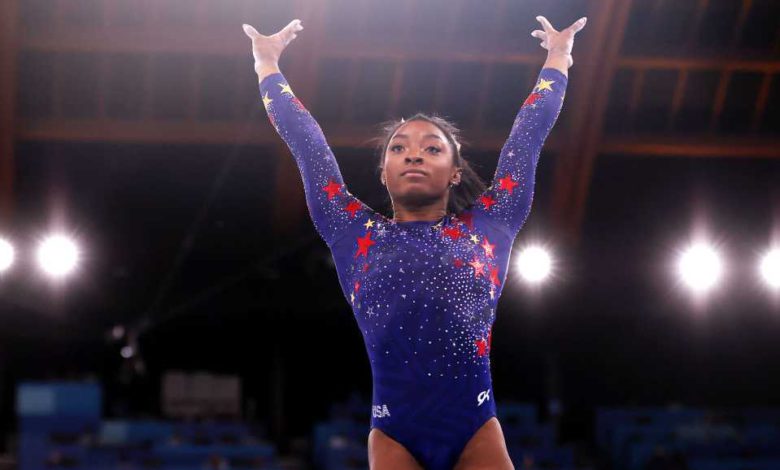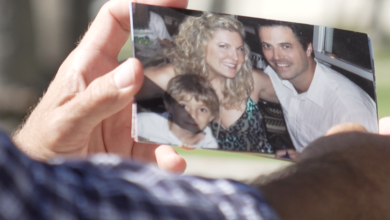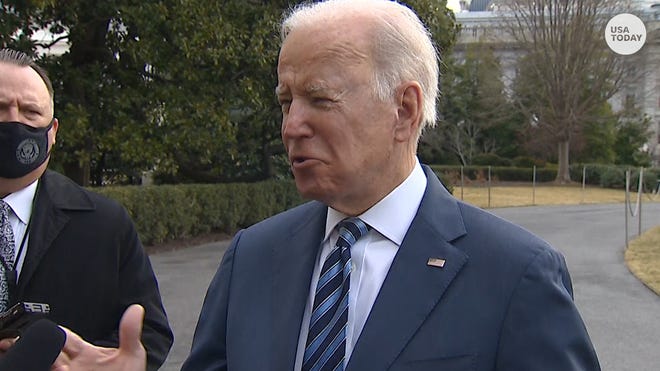
Gymnast Simone Biles withdraws from uneven bars, vault Olympic events
dr norman Fareed is a clinical psychologist and joins us now dr fred great to have you on this morning biles saying she essentially needed to focus on herself before competing. What does this tell us just about the mental health of our young athletes? Wonderful question. And what it tells us is that our young athletes are under a lot of stress and we are very impressed with them. We enjoy watching their prowess as they go on the olympic competitions, but when you really listen closely to their comments in the interviews, you realize that they are with so much of the world, actually compete for the country and to do what we wish for them to do, which is bringing the gold and the mental health of these athletes is compromise often and we have to think about that the moon biles has us recognizing that the way we feel on the inside is incredibly important and can really affect the way we act on the outside. Uh Naomi Osaka of course withdrew from the french open and Simone biles even cited Naomi Osaka saying she's kind of influenced her and made her feel like it was okay to take this step. What do you think that, that just professional sports in general to these leagues and and the olympics and the organizers of these sports, what do they need to do in terms of taking mental health into consideration? I think what they need to do is listen very closely to Naomi Osaka, Simone biles, to all the people who are working very hard to to provide the competitions that they've been working towards, but they have to listen clearly is and recognize that there are mental issues that are going on inside of each and every one of us. There needs to be perhaps more of a psychological mandate where people are evaluated to make sure that they are psychologically capable of handling the pressures of being the public eye, as well as tackling all of the work that goes into the grueling research evaluations every day of the work of their of their their activity. So one would be to make sure that there is some kind of therapeutic alliance on board for these competitive competing athletes. Another is to allow them to tell their story when they're having a bad day, when they're having at that moment to let that that trauma out to someone who can really understand and listen. It doesn't have to be a therapist to give you a clergy could be a coach, but there really needs to be greater education is to the method well being of our athletes in terms of the olympics. I mean, this was this was it's tough in any circumstances to be an olympic athlete with so much pressure on you, but in particular, here, no family was allowed. The support system is really not there. How do you think that played in sport Network is so essential for particularly our young athletes? Because we are the existence out of context, we, our culture of people that connect with one another and being isolated and doing all of this work without the availability of a parent or sibling or best friend, really does deter one from the internal strength that we have. There's a light inside of every one of us. But in order for us to recognize that trove of greatness inside of us, that light that shines, we need to see that light. We need a mom and dad, someone who really believes in us, somebody who is not just in our private audience, in our mind, in our heart, but right there by our side there is oxytocin which is an which is a neurotransmitter, our brain, which is the love drug, which is the way that we feel strong. We get more oxytocin from connecting with others who we care about hugging and shaking hands, but if were kept away from our closest relatives are closest resources, we're going to be more isolated and we run the risk of feeling weaker on the inside. And at moments like this weakness is not what we need to deal with. We need to do with an inner strength that says I can do this. It feels like um we have reached a turning point in this country where it is okay to talk about mental health. Do you feel like they're the stigma that used to be around, you know, just talking about mental health issues. Do you feel like that is starting to change? I think it's beginning to change. I think we have much more work to do. I mean, I've been doing psychotherapy for 30 years uh and I will tell you both in the academic scene, as well as in the hospitals and in personal private practice, there still exists a stigma. People are still afraid to say I've got a concern. Um We we actually are beginning to go from mental illness to the term mental wellness because we don't want there to be some type of a stigma, but there's so many more folks out there, particularly young adults that are afraid to say I have an issue, I have a problem. And if we could only help them use their voice, find their voice, give their voice to someone who can understand and not be ashamed that something on the inside doesn't feel right, we can help them do that. We will save so many more lives. We see people who are physically ill, they carry their pain in front of them and we feel for them as a public, but when people carry your their pain on the inside, we don't know how to help you unless you tell us there's something going on. I do believe the stigma is reducing, but there's still so much more ahead and every human being in this world struggles with something we need to feel, okay, things that were not. Where is that line? I think a lot of people, you know, it's been a rough year and a half in this pandemic. What what is that line where you know, you may feel in a bad mood or depressed about something. At what point do you need to go and seek professional help? That is a is a beautiful question. And the answer to that question is to please be aware of certain things that are changing in your everyday exists. For example, there's there are for people who are struggling with mental illness. It's not it's not as everybody else as we think in Hollywood or on tv. It's subtle. You may find yourself having difficulties in sleeping, sleeping too much or not at all. Changes in appetite, changes in concentration where you can't really pay attention, you lose your keys, you forgot someone's name. These are subtle changes in your daily experiences but they may be assigned that something is going on. Remember depression has about eight symptoms that are physical and only two that are emotional but you're crying and you have feelings of hopelessness but there's fatigue, there's laziness or lethargy, there's confusion of thought, sometimes retardation in your in your speech in your gate and so please be aware that changes in your body, changing relationship. Friends can also park him. It's the change in your mental wellness. Please also understand that if you do not cry with your eyes, you will cry with another organ of your body aches and pains and perhaps issues with your stomach or your back or you'll be fighting and irritable with those of you love. These are tears that are also retention. Really good insight and a really good way to think about it. Doctor norman freed clinical psychologist. Great to have you on this morning, appreciate it.
Gymnast Simone Biles withdraws from uneven bars, vault Olympic events
USA Gymnastics says Simone Biles has decided to withdraw from the Olympic event finals in the vault and uneven bars."She will continue to be evaluated daily to determine whether to compete in the finals for floor exercise and balance beam," USA Gymnastics said in a statement.Biles said she was putting her mental health first when she withdrew from the gymnastics team event after one rotation. The U.S. women won silver there. She also decided not to compete in the all-around. American Sunisa Lee won gold in that event.MyKayla Skinner, who had the fourth highest score in vault during qualifications, will compete in vault finals for the U.S. alongside Jade Carey, who finished with the second highest score. Biles was the defending Olympic champion in the vault.
USA Gymnastics says Simone Biles has decided to withdraw from the Olympic event finals in the vault and uneven bars.
"She will continue to be evaluated daily to determine whether to compete in the finals for floor exercise and balance beam," USA Gymnastics said in a statement.
Biles said she was putting her mental health first when she withdrew from the gymnastics team event after one rotation. The U.S. women won silver there. She also decided not to compete in the all-around. American Sunisa Lee won gold in that event.
MyKayla Skinner, who had the fourth highest score in vault during qualifications, will compete in vault finals for the U.S. alongside Jade Carey, who finished with the second highest score. Biles was the defending Olympic champion in the vault.
This content is imported from Twitter.
You may be able to find the same content in another format, or you may be able to find more information, at their web site.








